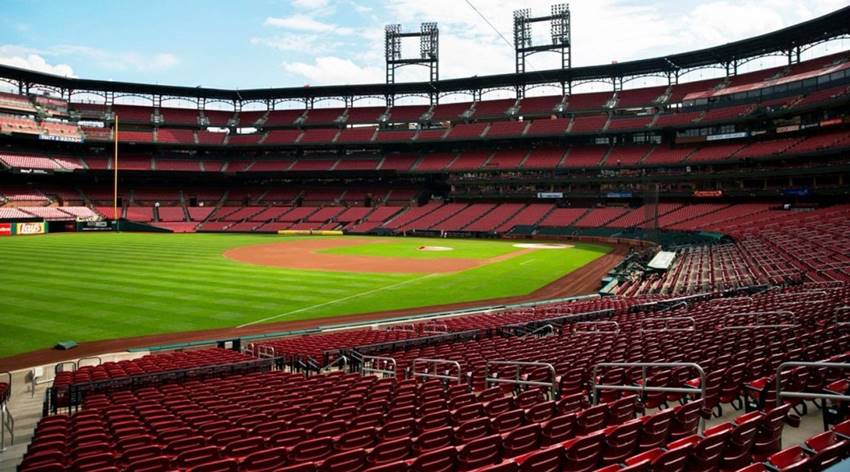America’s Pastime in danger of becoming minor player on major league sports scene

In the 1850’s, the moniker “America’s Pastime” was first given to baseball, according to author John Thorn, who wrote the book “Total Baseball.”
For at least a century, that was most certainly the case.
Eventually, the growing popularity of the NFL surpassed Major League Baseball, particularly when baseball had work stoppages.
In 1972, players went on strike as players contested the pension fund. That resulted in the cancellation of 86 games. In 1973, there was a lockout by owners over salary arbitration but no regular season games were missed. There was another lockout in 1976 over the reserve clause as free agency turned real, but no games were missed.
There was another brief strike in 1980 over free agent compensation. No games were missed, but that carried over into 1981, resulting in a lengthy, in-season strike and many regular season games were missed. The league played its first split-season in the modern era, as a result.
Then came another brief strike in 1985 over the pension fund again, with canceled games eventually made up.
There was a lockout in 1990 by owners but the full season was played. This one, again, was over free agency and salary arbitration.
Then came the disastrous 1994-95 strike, which ended the 1994 season prematurely and there was no World Series. The strike carried over in the 1995 season and 18 games were canceled before the owners and players finally reached a binding agreement. The strike was over a salary cap proposal and salary arbitration.
That strike did permanent harm to the game. It cost the sport some lifetime fans for life, who never returned.
The Iron Man streak of Cal Ripken Jr. certainly helped bring people and interest back, as did the dramatic acceleration of the long ball, courtesy of Barry Bonds, Mark McGwire and Sammy Sosa which later became tarnished in what became known as the Steroid Era of the game.
Baseball is a great game, one I truly love, as do many others.
It remains incredibly popular on the youth level and throughout high school and college programs across the land. It has been my great pleasure to attend Major League games at 27 different stadiums in my lifetime. That is an annual trek for me, at least when I was not broadcasting baseball games for the New Orleans Zephyrs, the University of New Orleans, Delgado or for high schools.
Understand that the sport is still popular and on solid ground.
Consider the fact that five teams (Los Angeles Dodgers, St. Louis Cardinals, New York Yankees, Chicago Cubs, Los Angeles Angels) drew over three million fans in 2019 and the fact that 18 teams drew over two million fans. There were 19 of 30 teams that averaged over 25,000 fans per game over the course of a 81-game home season.
In Minor League Baseball, 13 teams drew over 500,000 fans, 25 drew more than 400,000 fans and 58 teams drew over 300,000 fans in the 2019 season. There were 88 teams drawing over 200,000 fans.
The sport, even at the minor league level, remains viable, another reason why a local ownership group is looking to land a team in the market to replace the team formerly known as the New Orleans Zephyrs. What in the world is a Baby Cake, anyway? The only good thing about the team leaving Metairie is the fact that they took that dreadful name with them. Getting another team here with a fresh start and local ownership is a welcome, great concept with jobs to follow the family entertainment aspect of the game.
Now, Major League Baseball is contracting many minor league teams across the land at lower levels, obviously, against the will of those markets, teams, its players and employees.
Now, the Major League Players Union and owners continue to bicker over money in terms of starting the COVID-19 delayed 2020 season.
Placing that picture on a split-screen with the NBA and NHL, baseball looks bad.
Both of those well-run leagues have finalized their plans and will resume their seasons by the end of July.
Meanwhile, owner proposals to start the baseball season have been met with players union counter-proposals ad nauseum. It is, to the casual and hard-core fan, nauseating to watch.
In a place and time where lives were lost over a worldwide pandemic and where many jobs were lost or, at the very least, interrupted with families struggling to make a living, billionaires and millionaires bickering over money is distasteful, at least, and disgusting at its zenith.
Additionally, Major League Baseball is in the midst of a full frontal offensive to take over Minor League Baseball. There is sure to be some push-back on this. Whether that would be a good or bad development remains to be seen.
What we do know now is that upwards of 1,000 minor league player contracts have been terminated and it appears that there will be no Minor League Baseball in 2020, causing substantial loss to communities throughout the country. Thankfully, some teams have rescinded the initial firings and will pay their minor leaguers.
While it is clear that the baseball player’s union is the strongest and most unified in all of professional sports, the inability of the two sides to get together is perplexing.
We salute Curt Flood, who sacrificed his career for the reserve clause and fighting for free agency. His fight was just and he was a warrior for social justice which spilled over into baseball. He sat out the 1970 season after refusing to report to Philadelphia when traded by St. Louis. It effectively ruined his career.
Four years later, arbitrator Peter Seitz changed the landscape of the game, ruling that Dave McNally and Andy Messersmith, who had played a season with contracts, were free agents. That nullified the reserve clause and created unfettered free agency, which we have today in the game.
Marvin Miller, Don Fehr and others fought for players rights and are to be credited as well.
Still, the players are not always right and owners are certainly not always right. Who is in life?
The general public has numbers fatigue. So do I in reporting the latest news.
Is it going to be 114 games, 89 games, 76 games or 48 games? What about “pro-rated share?”
There has to be give and take, compromise to achieve the greater good.
Of course, the lack thereof is a reflection of society, as a whole, or so it seems.
As the old legend expression stated, “Rome is burning while Nero fiddles.”
While the NBA and NHL are ready to strike up a pleasant tune to a virus-weary, finance-suffering and sports-starved populous, baseball needs to tune the guitar in dramatic fashion. It is out of tune, out of step with the rest of society and that is a shame for a game that many of us love.
Let us hope calmer heads prevail.
Continuing on the current path will truly make a great sport an also-ran, a shadow of America’s past, not the present and certainly not the future, in time.
Here is my advice.
Play ball!
- < PREV Jake Olsen named Northwestern State special teams coordinator
- NEXT > SEC football media days to be conducted virtually
Ken Trahan
CEO/Owner
Born and raised in the New Orleans area, CCSE CEO Ken Trahan has been a sports media fixture in the community for nearly four decades. Ken started NewOrleans.com/Sports with Bill Hammack and Don Jones in 2008. In 2011, the site became SportsNOLA.com. On August 1, 2017, Ken helped launch CrescentCitySports.com. Having accumulated national awards/recognition (National Sports Media Association, National Football…





